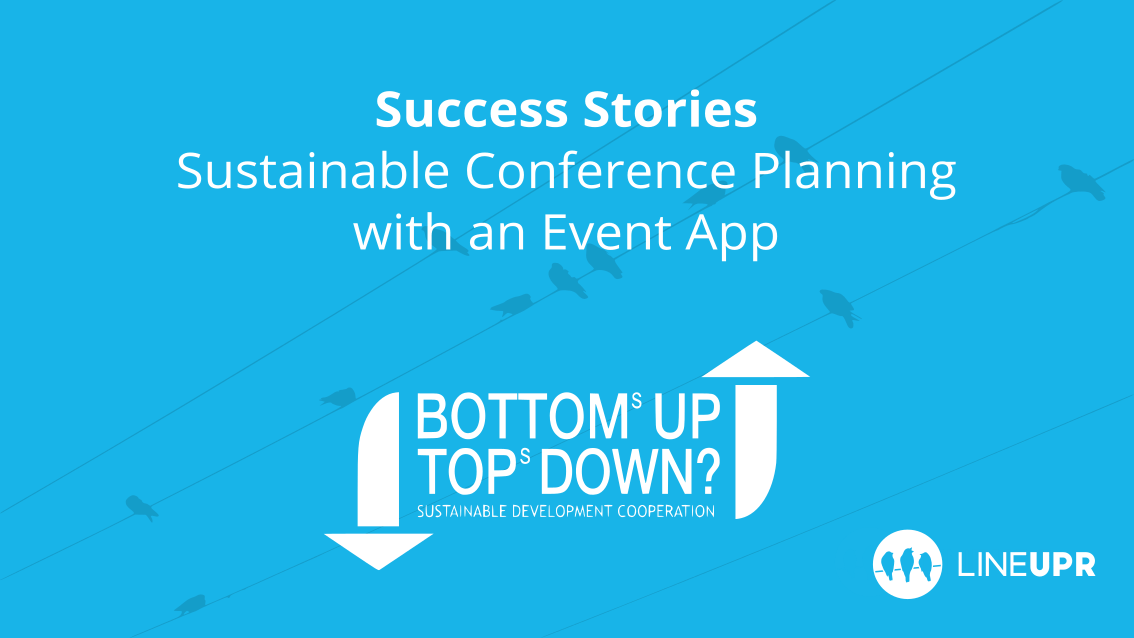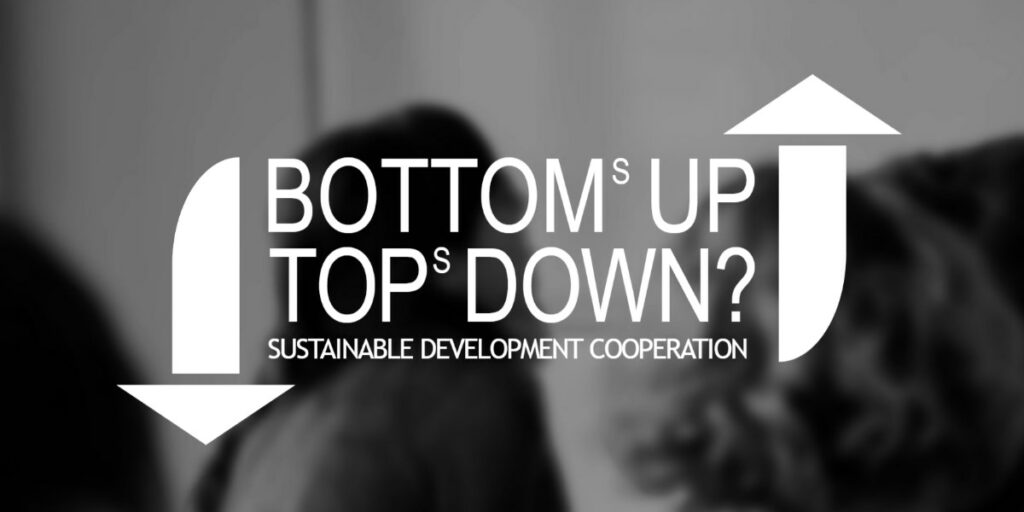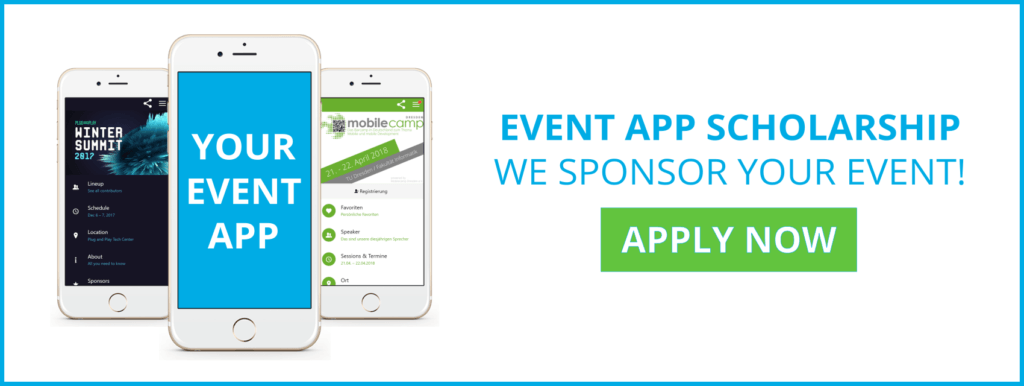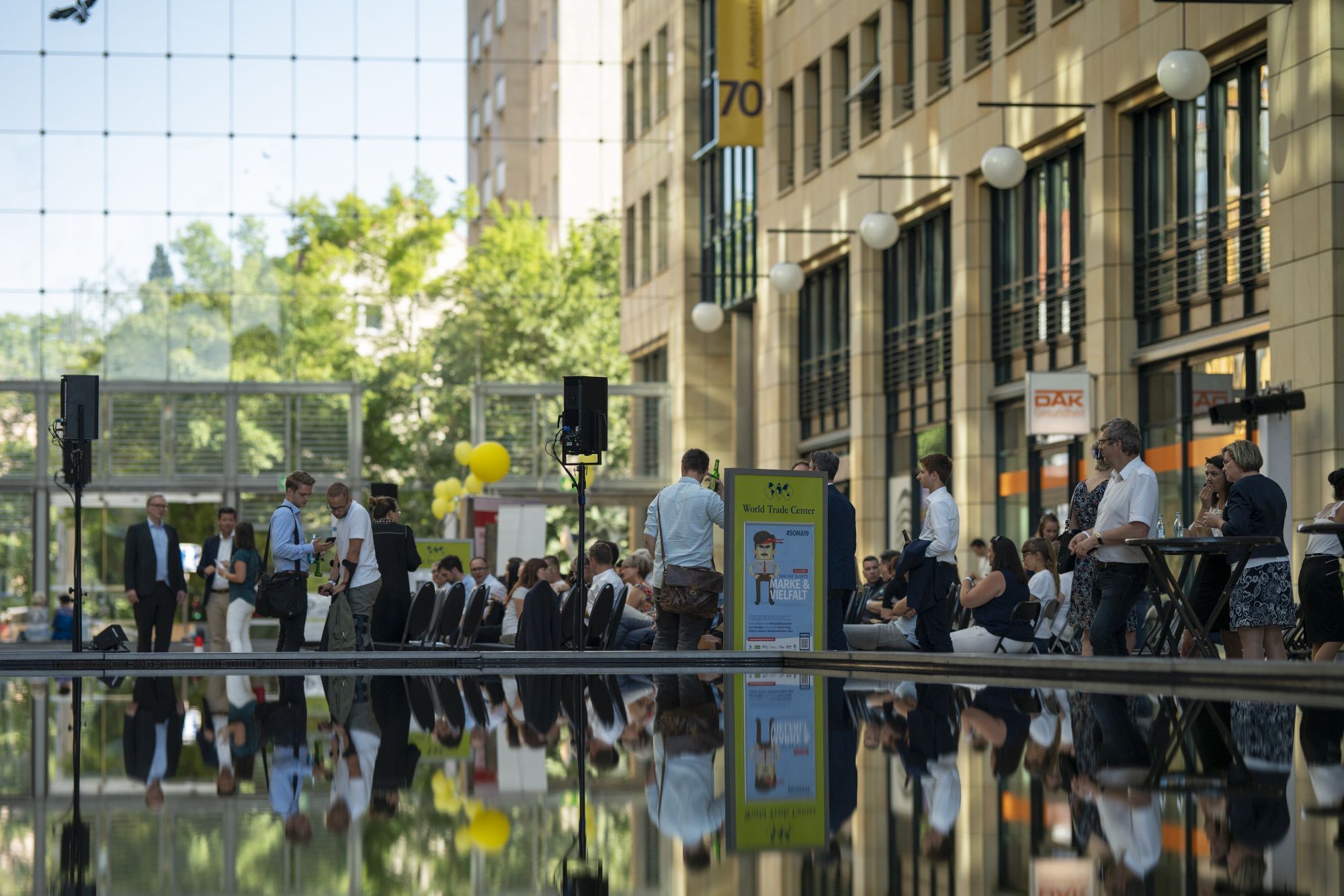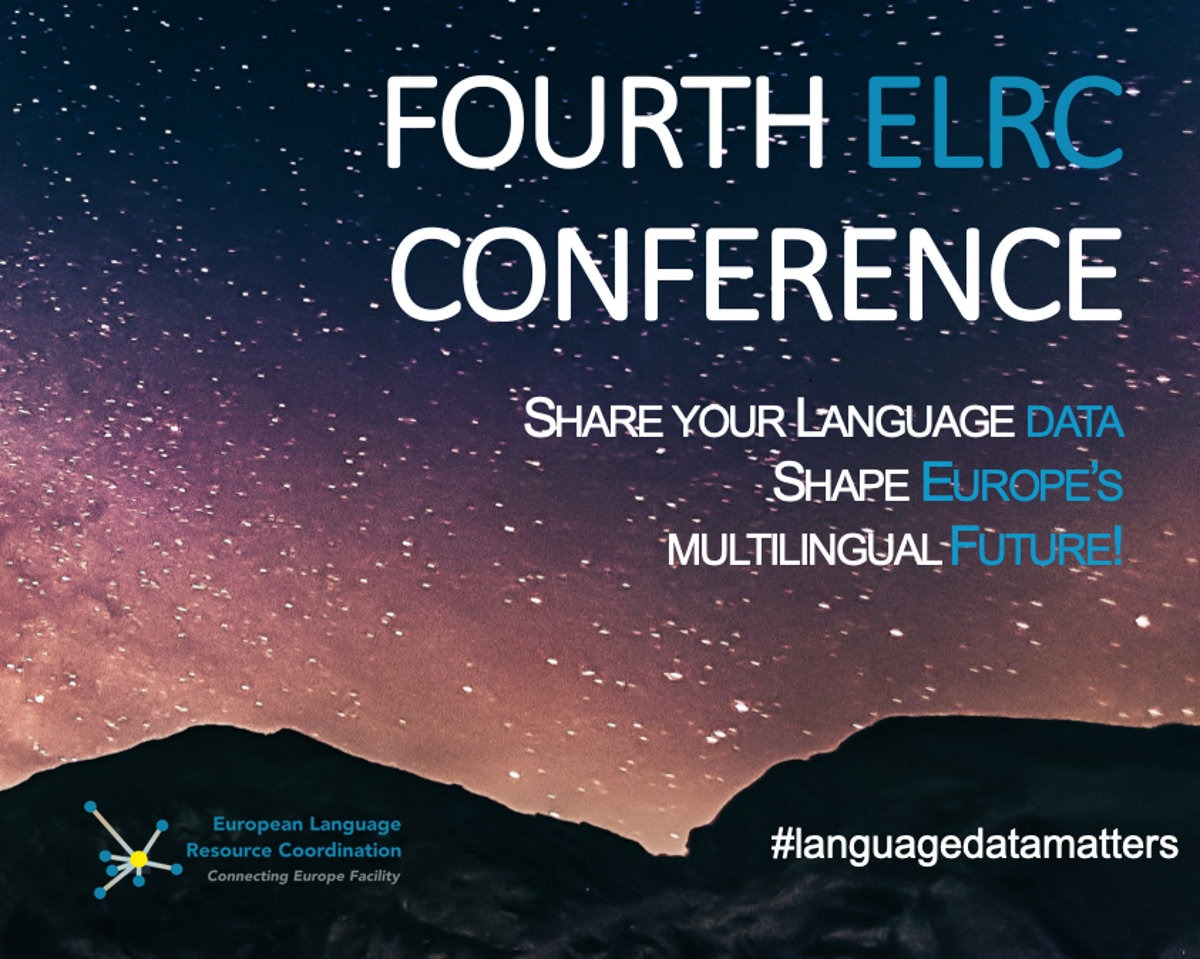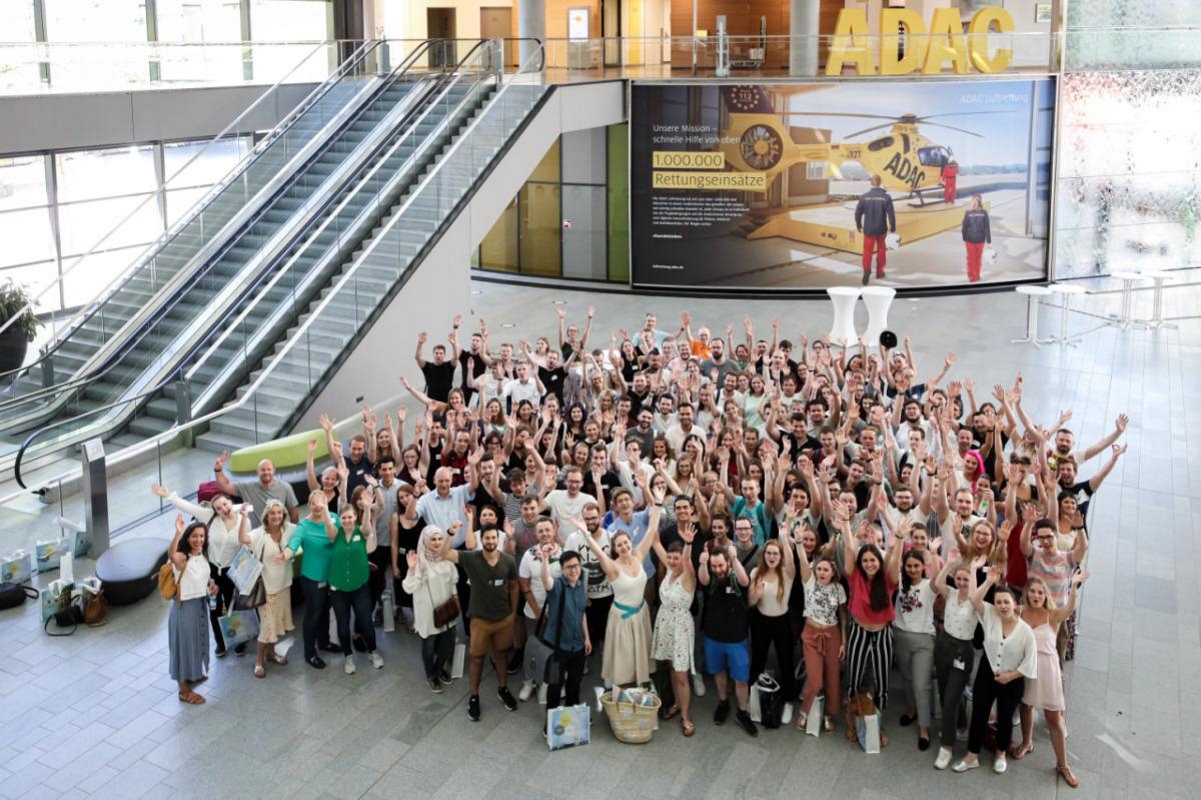Reading time: 7 minutes
Today, it will be sustainable with us. We have Flora Dicke, one of the organizers of the oikos Winter School 18 as a guest. oikos International is an international student organization which executes a conference on a sustainable economy every year. This year the focus was on non-governmental organizations in developmental aid.
Flora will tell us more about how to sustainably plan and execute events, and what role event apps can play. Have fun reading ?
LineUpr: Hello Flora. Thank you for taking the time to do this interview. Please introduce yourself and the Winter School event.
Flora: I am Flora, and I’m currently studying Philosophy, Politics, and Economics at the Witten/Herdecke University in my 4th Semester. The oikos Winter School is an annual conference organized by students of the oikos chapter of the University of Witten / Herdecke for students from all over the world. oikos International is an international student organization that works with more than 40 universities worldwide, addressing sustainability issues, especially at business schools. oikos International and the local groups at universities are working towards the goal of creating a more conscious approach to the possible consequences of our current actions. Since 2007, 20-30 students from all over the world come together each year at the University of Witten / Herdecke to create a joint stimulus for more sustainable business. The equal consideration of social, ecological and economical sustainability is of particular importance here. For one week, theories, methods and case studies are analyzed in various formats, and perspectives and ideas are exchanged and reflected upon.
This year’s Winter School dealt with sustainability in the non-governmental sector of development co-operation under the title “BOTTOMs UP – TOPs DOWN? Sustainable Development Co-operation”, focusing on the different approaches to development co-operation. 20 students from multiple countries got inputs from experts who first presented theories, identified problems and outlined successes and failures of different approaches in the non-governmental sector of development cooperation. Keynotes provide the basis for the further course of the conference, which focused on practical and solution-oriented work. Participants were expected to work on existing problems within projects, discuss these and develop ideas on how to address them. This way, the participants got experience on how complex the arising issues are and learned, apart from the theoretical input, how crucial it is to look at problems from more than one side. To be able to present a variety of points of view and perspectives, participants and speakers with diverse cultural and regional backgrounds joined the Winter School.
LineUpr: How much time and work do you spend, on average, on the planning of an event?
Flora: The oikos Winter School planning team consisted of 11 people. Starting in May 2017 we worked many hours planning, conducting and revising up until May 2018. The work was on a entirely voluntary basis and reached up to 15-20 hours some weeks for some team members while at other times it was only 2 hours a week.
LineUpr: What makes your event special? What added value do you offer the participants?
Flora: The oikos Winter School 2018 was not a commonplace conference but something beyond.
Firstly participants, speakers, and team members always dined together at Christopherus Hof. It’s a beautiful, old and unique farmyard close to the Witten/Herdecke University. There, people with disabilities live and work together in co-operation with their caregivers. Those people enriched the conference from a social perspective.
Executing a sustainable conference is unfortunately unusual and costs more money. With respect to sustainability, the food and drinks that were served were exclusively organic. In addition to that, we reduced environmental pollution caused by mobility by using a VW Golf Hybrid for transports and transfers and compensated participants’ and speakers’ flights. We, therefore, want to thank our donors and supporters who, in any way, enabled us to accomplish this important sustainability goal.
Executing a sustainable conference is unfortunately unusual and costs more money.
Regarding the conference’s programme, we transferred knowledge in a very broad sense: Speakers engaged participants by role plays and simulations; participants fostered international exchange by giving home-country related presentations on the conference’s topic; reflection groups every evening created time and space to think, rest and intensify human relations; Linus Eppinger came one evening to play long forgotten pieces of jazz on his guitar, and during the “Open Space” five participants spontaneously visited the Füllbar Witten, a zero waste shop, supporting Witten’s local economy and being inspired by a different way of grocery shopping. A Japanese participant had not known that zero waste shop existed and now she is keen on bringing this concept to her home country.
To extend the contextual information range, the panel debate and one keynote were opened to the public at no charge. Additionally, journalistic articles on the highlights of the oikos Winter School 2018 were published on medium.com. These will also serve as new marketing tools for future Winter Schools.
Last but not least the personal atmosphere during the Winter School can be best described by the following quotation: “I have never experienced such familial and intense personal contact at similar events.”
LineUpr: Who is the usual target audience of your events and how do you reach them? Which channels and tools do you use for marketing and presentation?
Flora: We target students from around the world and use the oikos network as well as the oikos Winter School alumni to spread info. Moreover, we have a website, a facebook page, and a newsletter and we shared the programme with several universities around the world, especially those that already have a connection, e.g. an exchange partnership, with the Witten/Herdecke University.
LineUpr: Which of these channels is, in your opinion, the strongest or most efficient? What information do you distribute over these channels?
Flora: For us, the Winter School alumni was the most efficient way to spread info since they are usually quite excited about the programme and think that more people should join. On our different channels, we share the main topic of the conference and some info on that as well as our goals and target group and we make our speakers list and programme public.
LineUpr: How did you use the app before, during and after the event?
Flora: We used the app mainly during the Winter School for the participants as it was the easiest and, ecologically, the most sustainable way to spread info about the programme, our speakers, venues, the oikos network, and even on trivial things like the bus schedule and side events.
Our participants were informed about the App in our participant guide which they received beforehand and upon arrival.
LineUpr: How did your guests respond to the app?
Flora: The App was actively used to get an overview of the programme and check where and when the next session will take place. We got good feedback on the functioning and easy handling as well as some amazement that we had an app for our (rather small) conference.
We got good feedback on the functioning and easy handling [of the app]
LineUpr: This is the second time that you have used LineUpr. How have your events changed through the usage of an event app?
Flora: As the organizing group changes every year due to the usual student fluctuation in universities we cannot compare it to the Winter Schools three or four years ago. However, we enjoyed the easy opportunity to forgo printed programmes and flyers and have a simple way to spread info, even on short notice, to all our participants.
LineUpr: Is there a crazy story from the last event that you want to tell us about? Would you like to share this story with our readers?
Flora: For me the craziest and rewarding thing was that a few participants said that everybody should visit such a Winter School at least once in his lifetime and talk to many different people from around the world about the planet we live on, the people we live with and how we treat this ecological and social environment. Some used their savings from the last years just to come and join the Winter School. Those are kind of crazy things to experience as a 20-year-old bachelor student that was one of the heads of the organizing team.
First of all – use LineUpr instead of printed programmes! It’s intuitive and easy to use and you have all the tools needed.
LineUpr: What are the top three tips for using LineUpr that you would like to share with other promoters?
Flora: First of all – use LineUpr instead of printed programmes! It’s intuitive and easy to use and you have all the tools needed.
Once you are there, you will notice that there is a function to change the beginning and end of multiple programme points at the same time, e.g. everything starts 20 minutes later. Genius!
Share your workload! Putting all of the information into LineUpr will take some time (however, obviously less time (and money) than programming your own app), but it’s an easy tool and more than one person can work on it. Oh, and it’s always more fun to work together, right?!
LineUpr: Thank you very much for the great and detailed interview, Flora. We were able to get an excellent insight into your sustainability conference and are glad that there are such events as yours.
If you would like to learn more about oikos International or would like to participate yourself, then take a look at the website or the Facebook profile. For a first impression, we can also recommend this short image film.
We look forward to supporting you again next year.
